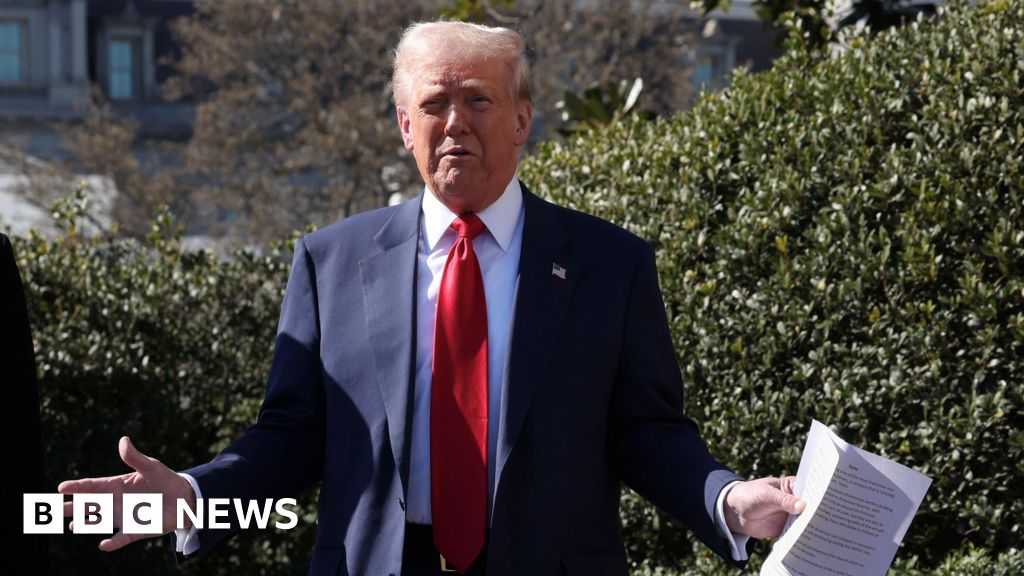How much of a difference could Iran’s regional allies make in a war? | Israel attacks Lebanon News
As fears of an all-out war between Israel and Iran mount, it is clear that the United States is backing its longtime ally, Israel. But how much of an impact could Iran’s regional allies play in a war between the two?
Over the past year, Yemen’s Houthis have launched regular attacks on Israeli-linked vessels in the Red Sea, the Gulf of Aden and the Bab al-Mandeb Strait, in solidarity with Palestinians and in protest against Israel’s war on Gaza.
Since Israel assassinated longtime Hezbollah leader Hassan Nasrallah in a massive air strike on a residential suburb of Beirut last week, plenty of threats have been made across the region.
Following Nasrallah’s killing on Friday – confirmed by Hezbollah the following day – Houthi spokesperson Yahya Saree warned in a televised address that the Houthis will continue its assaults until Israel stops attacking Lebanon and the Gaza Strip.
He said the group had targeted Israeli military sites in Tel Aviv and the Red Sea port city of Eilat with drones.
Since then, Shia armed groups in Iraq and the Houthis in Yemen have continued to target Israel with missiles and drones.
But Israeli forces have repeatedly stated that its defence systems – assisted by the US, Jordan and other countries – have mostly intercepted attacks launched by Iran and its allies. They insist that the attacks, including the Iranian missiles that targeted Israel on Tuesday, have caused only minimal damage so far.
Sina Toossi, senior fellow at the Center for International Policy think tank based in Washington, DC, said that he believes Israel has downplayed the damage from Iranian strikes, but it is still “a positive sign” because it lessens the political pressure on Israel and the US for a counter-retaliation and creates a scenario where they don’t have to attack in a big way.
“It reinforces the need for a ceasefire. If the Biden administration was able to stop all this months ago, we wouldn’t be here but we’re going in this direction which is scary.
“I think no side wants this [war], but if it comes to that, [Iran and its allies] are threatening to deter that from happening.”
Oil – a ‘key leverage point’
Toossi said “a key leverage point” for Iran and its allies are the oil facilities in the region.
“[Iraqi armed groups] have been threatening that if Israel launches a big attack right now – Israel has also threatened to attack Iraq – that they would hit back as well, including against oil facilities in the region,” Toossi told Al Jazeera.
“If the Persian Gulf energy exports are disrupted in a substantial way, it will have ramifications for the global oil market, for the global economy, for Europe.”
Oil facilities have long been targets for all sides and strikes on them can cause huge disruption. In September 2019, the Houthis claimed drone attacks on two major oil facilities owned by Saudi Aramco, Saudi Arabia’s state-owned oil giant, an attack which the US blamed on Iran.
In just one strike, 5 million barrels a day of crude production had reportedly been affected, about half of Saudi Arabia’s production, or 5 percent of global oil supply.
“We saw the Houthis before their ceasefire with Saudi – they were hitting pretty deep into Saudi Arabia,” Toossi said.
Iraqi armed groups warned on Tuesday that US bases in Iraq and the region would be targets if the US participates in any retaliation against Iran or if Israel uses Iraqi airspace against Tehran.
Similarly, when it comes to US bases in the region, including in Saudi Arabia, the United Arab Emirates, Qatar, Bahrain and the use of Iranian airspace, Iran has warned that those states would be considered to be complicit in an attack against Iran, and their critical infrastructure would be targets as well, Toossi said.
Could armed groups hit Israel itself?
Andreas Krieg, geopolitical risk analyst and associate professor at the School of Security Studies at King’s College London, said Iraqi armed groups do not have the capability to strike Israel remotely and lack the stockpiles of arsenal that other groups like Hezbollah and the Houthis have.
Designed primarily to disrupt US coalition forces during the Iraq war, “they are primarily in the guerrilla, asymmetric warfare space and cannot make a huge difference to Israel”, Krieg told Al Jazeera.
Hezbollah, on the other hand, has a global network that it operates from with subsidiary bases across the world including in Saudi Arabia and West Africa, making them “far more dangerous to Israel because [they] can strike Israeli targets overseas,” Krieg said.
Krieg added that the missiles or drones that have been fired from Iraq have probably been operated by Iranians in Iraq, rather than Iraqi militias.
“It’s easier to strike Israel from Iraq, rather than striking Israel from Yemen or from Lebanon now. You can use Iraq for a staging ground, but infrastructure needs to be built,” he said.
Last month, the Houthis launched their deepest missile strike, reaching Tel Aviv and central Israel, as they targeted a military position in Jaffa.
The Houthis said Israeli defence systems could not intercept their hypersonic missile, which reached central Israel in 11 minutes from 2,000km away and started a fire in an open area about 11km from Ben Gurion airport.
Nasreddin Amer, the vice chairman of the Houthi media authority, said on X that “20 missiles failed to intercept” the missile.
Israel claimed the missile was damaged, but not destroyed by an Israeli interceptor missile.
Nine people suffered minor injuries, according to an Israeli official.
Disruption in the Red Sea
Krieg said he believes the Houthis’ closure of the Bab al-Mandeb Strait remains “the most direct impact” that they’ve made so far, as their missiles targeting Israel have been intercepted.
Betul Dogan, assistant professor of international relations at Ankara University, told Al Jazeera that the Houthis’ hijacking maritime trade has not made a big impact in terms of stopping Israel’s war on Gaza, but it has provided “a certain insecurity”.
“They do make Israel feel insecure – I think this is their ultimate goal and success at the moment,” she said.
“We know Iran can send missiles but when they use the Houthis, it’s like they have an additional layer to their capacity.”
Check out our Latest News and Follow us at Facebook
Original Source







